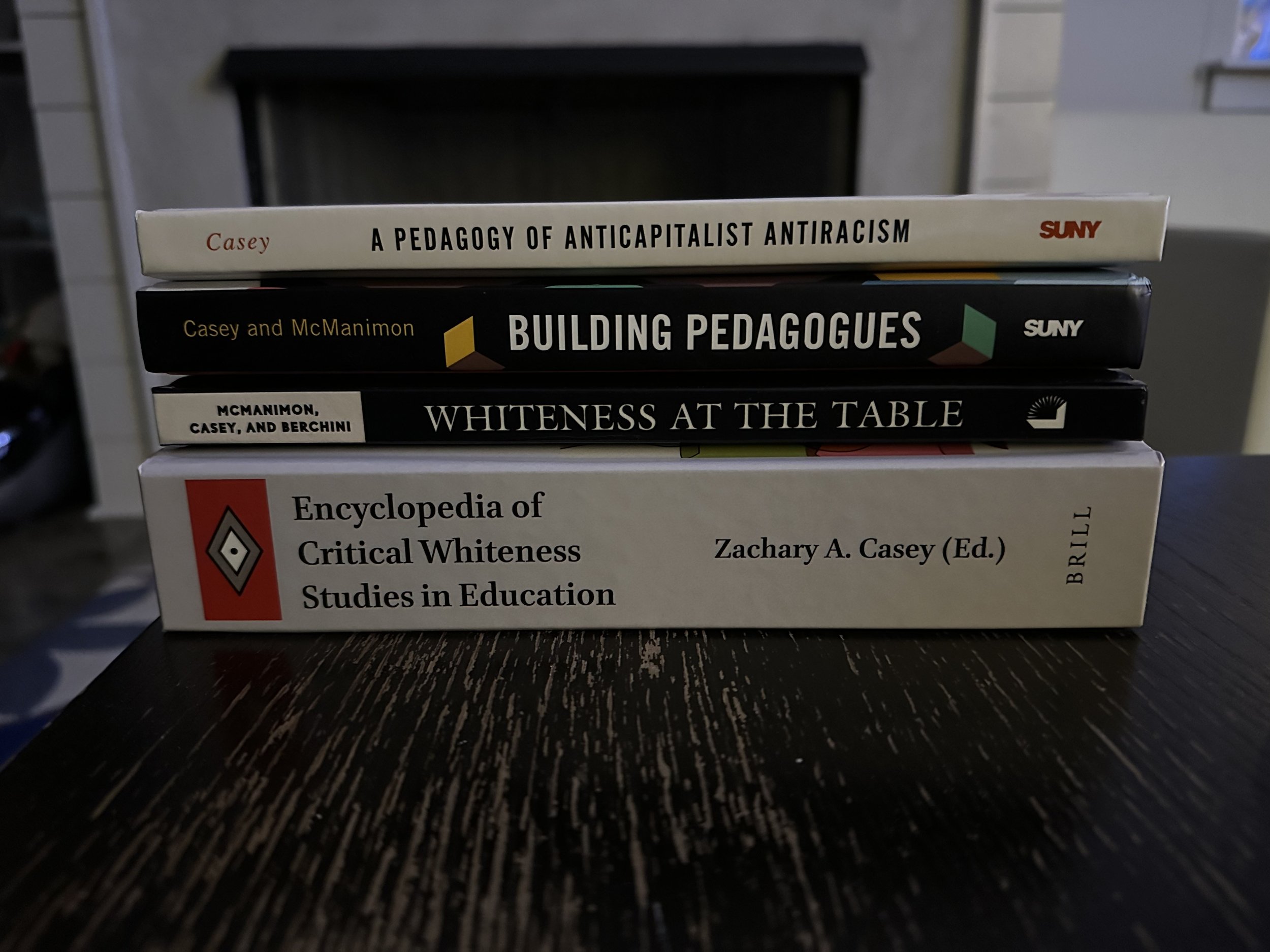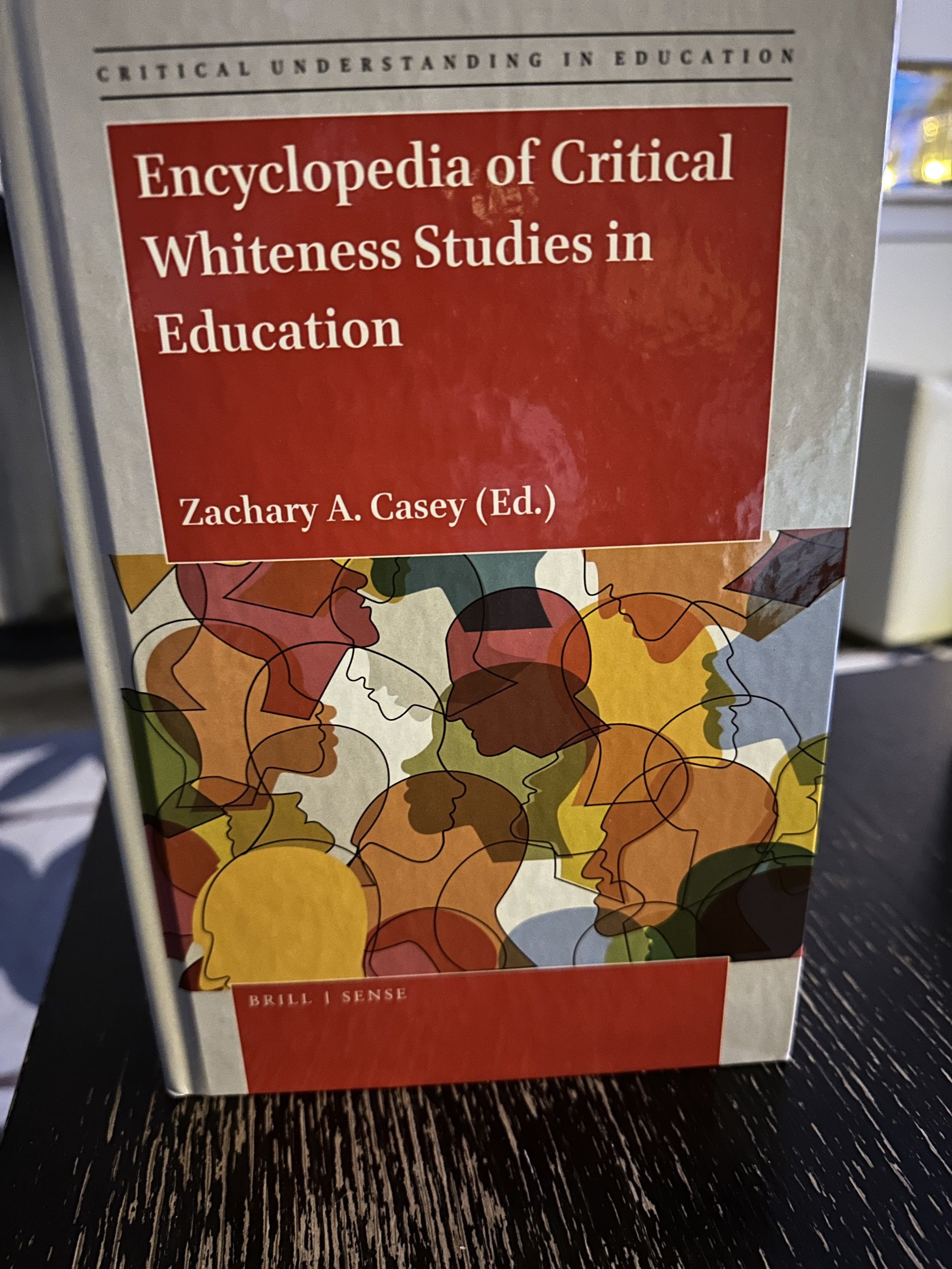
Dr. Casey’s Books
-

Critical Pedagogy and the Trouble with Consciousness Raising
Critical Pedagogy and the Trouble with Consciousness Raising incisively critiques the consciousness-raising project that has been so central to contemporary critical pedagogy.
The book argues that consciousness-raising work in formal educational settings over the past three decades has largely failed to advance social justice. By critiquing consciousness raising as an end in itself, the author employs a Marxist framework to highlight how consciousness raising alone cannot alter material conditions and realities. Consequently, the book illustrates how many pedagogical projects fail to transcend the idealist realm and impact the material world. Advocating for a materialist critical pedagogy that revisits Freirean principles of praxis and dialogue, the author proceeds to outline a politics of redistribution to invigorate future critical educational projects. From examining how discourse functions ideologically to uphold the status quo, to exploring how determinisms limit our life chances and imaginations, the author demonstrates that the challenges in achieving socially just education are largely self-imposed.
The book concludes with a new approach to critical pedagogy that avoids reifying consciousness raising and reasserts the importance of praxis in all critical educational endeavors. It will appeal to scholars and researchers interested in critical pedagogy, the sociology of education, critical theory, and the philosophy of education.
-

A Pedagogy of Anticapitalist Antiracism
Winner of the 2018 Outstanding Book Award presented by the Society of Professors of Education
Through an analysis of whiteness, capitalism, and teacher education, A Pedagogy of Anticapitalist Antiracism sheds light on the current conditions of public education in the United States. We have created an environment wherein market-based logics of efficiency, lowering costs, and increasing returns have worked to disadvantage those populations most in need of educational opportunities that work to combat poverty. This book traces the history of whiteness in the United States with an explicit emphasis on the ways in which the economic system of capitalism functions to maintain historical practices that function in racist ways. Practitioners and researchers alike will find important insights into the ways that the history of white racial identity and capitalism in the United States impact our present reality in schools. Casey concludes with a discussion of "revolutionary hope" and possibilities for resistance to the barrage of dehumanizing reforms and privatization engulfing much of the contemporary educational landscape.
-

Encyclopedia of Critical Whiteness Studies in Education
While critical whiteness studies as a field has been attacked from both within and without, the ongoing realities of systemic white supremacy across the globe necessitate new and better understandings of whiteness, white racial identity, and their links with education. Encyclopedia of Critical Whiteness Studies in Education offers readers a broad summary of the multifaceted and interdisciplinary field of critical whiteness studies, the study of white racial identities in the context of white supremacy, in education. Featuring scholars from across the Anglophone world, this volume seeks to offer both introductions and deep dives into the ever-shifting field of critical whiteness research in education.
-

Building Pedagogues
Antiracist professional development for white teachers often follows a one-size-fits-all model, focusing on narrow notions of race and especially white privilege at the expense of more radical analyses of white supremacy. Frustrated with this model, Zachary A. Casey and Shannon K. McManimon, both white teacher educators, developed a two-year professional development seminar called "RaceWork" with eight white practicing teachers committed to advancing antiracism in their classrooms, schools, and communities. Drawing on interviews, field notes, teacher reflections, and classroom observations, Building Pedagogues details the program's theoretical and pedagogical foundations; Casey and McManimon's unique tripartite approach to race and racism at personal, local, and structural levels; learnings, strategies, and practical interventions that emerged from the program; and the challenges and resistance these teachers faced. As the story of RaceWork and a model for implementing it, the book concludes by reminding its audience of teachers, teacher educators, and researchers that antiracist professional development is a continual, open-ended process. The work of building pedagogues is an ongoing process.
-

Whiteness at the Table
Antiracist work in education has proceeded as if the only social relation at issue is the one between white people and people of color. But what if our antiracist efforts are being undermined by unexamined difficulties and struggles among white people?
Whiteness at the Table examines whiteness in the lived experiences of young children, family members, students, teachers, and school administrators. It focuses on racism and antiracism within the context of relationships. Its authors argue that we cannot read or understand whiteness as a phenomenon without attending to the everyday complexities and conflicts of white people’s lives.
This edited volume is entitled Whiteness at the Table, then, for at least three reasons. First, the title evokes the origins of this book in the ongoing storytelling and theorizing of the Midwest Critical Whiteness Collective—a small collective of antiracist educators, scholars, and activists who have been gathering at its founders’ dining room table for almost a decade.
Second, the book’s authors are theorizing whiteness not just in terms of structural aspects of white power, but in terms of how whiteness is reproduced and challenged in the day-to-day interactions and relationships of white people. In this sense, whiteness is always already at the table, and this book seeks to illuminate how and why this is so.
Finally, one of the primary aims of Whiteness at the Table is to persuade white people of their moral and political responsibility to bring whiteness—as an explicit topic, as perhaps the most important problem to be solved at this historical moment—to the table. This responsibility to theorize and combat whiteness cannot and should not fall only to people of color.